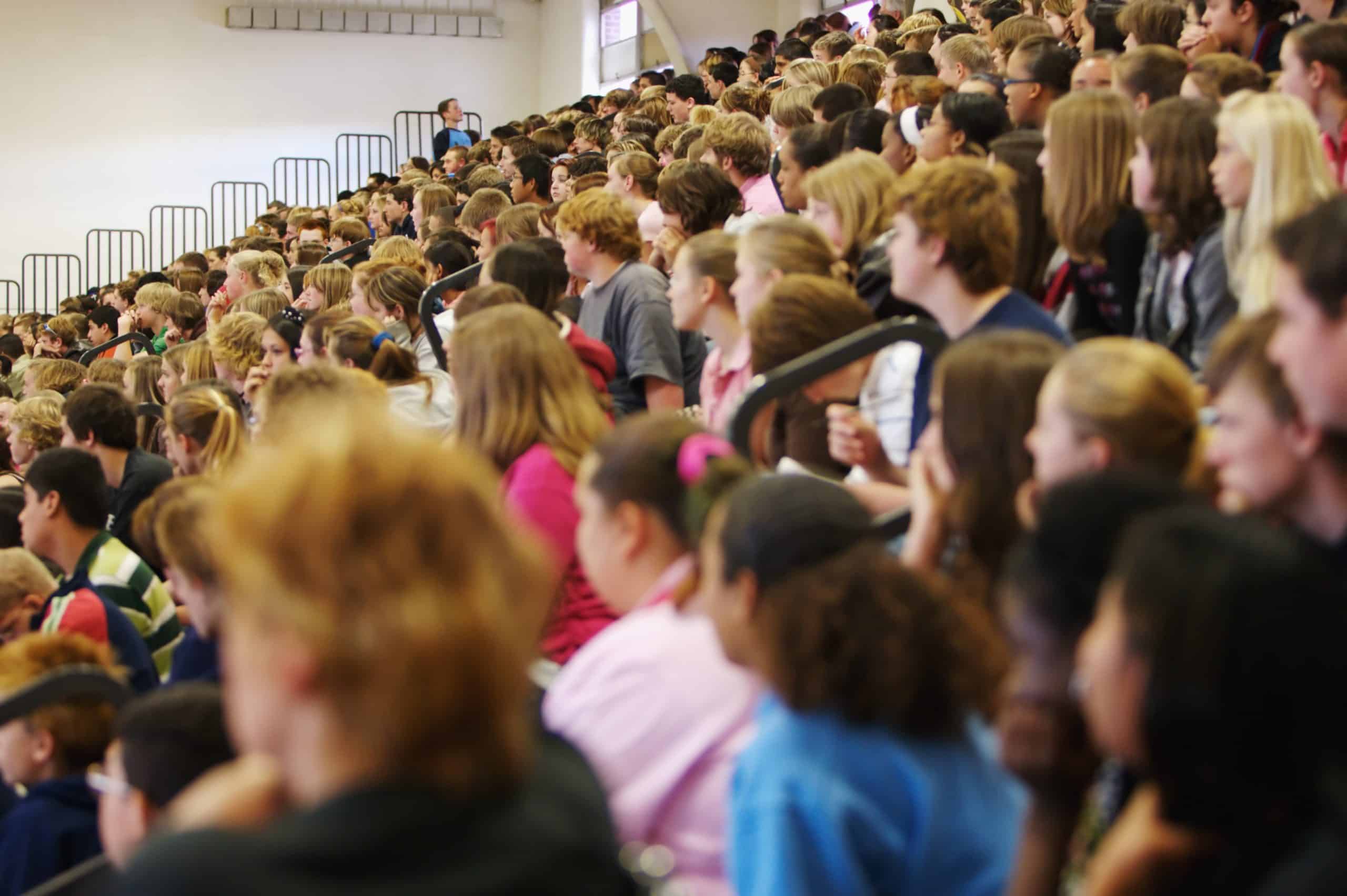Remember those bumper stickers that seemed all the rage in the nineties: “My son is an Honor Roll Student at Pleasant Valley Middle School?” Or, maybe you chuckled at the inappropriate bumper sticker that read: “My kid can beat up your honor roll student?” Or, perhaps you have seen posts on social media by proud parents displaying the fact that their kid made honor roll, or even high honor roll, or wait for it, the Principal’s High Honor Roll? You may have also read through the list of names on your child’s school websites, smiling with pride as your kid’s name is written there for the entire world-wide-web to witness?
Parental pride, student pride, school-wide pride concerning students performing at a high level of achievement is not necessarily a negative thing. Many students work diligently and consistently to earn top marks. Many students enjoy the extrinsic motivation of holding that paper certificate every grading quarter. Grades matter in school–one of the few agreed-upon measures of student success. Grades, however, are less of a predictor of actual learning, growth, and effort. Also, many schools do not mathematically calculate how a student earns a place on the honor roll. For instance, at my children’s middle school a student must not have a class grade below an 80 percent. Therefore, even if a student earns a 93 percent average for the marking period, but has a 78 percent in math, that child is not “fit” for an honor roll award.
Okay, you might say, so what? Who cares? It is just a piece of paper based on some criteria that do not represent what institutions of learning should value. I would agree. It doesn’t matter in the big scheme of things. So, why do schools across the nation, including the one that my children attend, make such a big deal about it? How come every quarter the entire fifth through eighth grades amass in the petite auditorium, to hear some of their peer’s called up on stage to receive their honor roll certificates? If honor roll attainment does not accurately show hard work and learning, why have an assembly?
The result of quarterly honor roll assemblies is public shaming. Shaming of those kids who we all know will never have their names called. Those children will sit in their school’s auditorium every quarter for four years and never walk up those creaky wooden steps. Those seated students may have special needs, live in poverty causing them educational disadvantages, or not complete their assignments for a variety of reasons. Like the students on the stage, the seated students are not monolithic. Does their exclusion in this ceremony motivate them to work harder? Or do they give up? What purpose is the assembly, or honor roll for that matter, serving?
[bctt tweet=”What purpose is the assembly, or honor roll for that matter, serving?” username=””]
This year, my children hear through the first year’s implementation of the Positivity Project that #otherpeoplematter, which I have previously written about in a post entitled: “Why is the Positivity Project Making My Kids So Negative.” I wonder does a public gathering of all students embody this hashtag? Does an honor roll assembly represent the values and the goal of the Positivity Project for which the district is invested? At the parent conference night, I observed many posters lining the halls promoting the idea that everyone matters, but the school leaders continue to perform the ritual shaming of honor roll assemblies every quarter. To give the school credit, this past quarter they did have the students wear their Positivity Project shirts and sit with other people who had the same top character trait. The result was that when students were called up to receive their honor roll certificates, they were seated in multi-grade-level groups instead of by class. Change is slow.
My daughter in fifth-grade received her high honor roll certificate in the same room that my eighth-grade daughter was experiencing her first assembly where her name was absent (she was the numerical example above of a student earning a 93% average but not the distinction of honor roll). My oldest daughter who has been hardened by rejection, told me later: “I was fine. It doesn’t matter.” My youngest was happy to receive the certificate but felt uncomfortable on stage. In an attempt to build empathy, I used the day as a conversation about classmates who were left out. I also typed up a certificate for my oldest daughter and performed an honor roll ceremony in our kitchen. Although she claimed that she was okay with not being called, I knew she appreciated the gesture. We knew as a family that her math grade was due to her lack of math skills, which have not fully developed because she has never qualified for help, but she often needs extra practice. In addition, her math teacher counts assessments as 85 percent of the quarter grade. She can no longer coast on her homework work ethic in math class; she must finally learn the material.
Unfortunately, students learn in a broken system. Honor roll assemblies shine a light on educational dysfunction. All students do not enter school with the same abilities or advantages, so success needs a new definition. Grades tell only a chapter of our students’ stories. Moreover, our students have plenty of examples of how they are “less than” others. Schools need to demonstrate appreciation for the diverse needs of all students, not continue to celebrate the few and the fortunate.







We have a lot of the opposite problem where I am. Kids who are consistently getting great grades, not getting into trouble, etc., are made to sit in study halls while kids who “need to burn excess energy” or “are getting rewarded for not having a behavior that day” get to go play basketball or do other fun activities. Kids see this and think “why am I getting punished for doing everything right?” We need to recognize both improvement AND continual hard work and dedication.
I don’t think assemblies are the way to go, though, or these quarterly parties that the kids on the honor roll or no tardy list get. That’s once per quarter, not daily or even weekly. I don’t have a solution, but I also don’t believe you shouldn’t recognize a problem until you have one. Maybe someone else will have a solution if you are willing to bring up the question!
Acknowledging achievement shouldn’t be viewed negatively. Sitting in a PTO meeting at any school will introduce you to the parents of your honor roll kids. Parent involvement in a child’s education is the greatest predictor of student success that a family can control. Honor roll assemblies aren’t the problem. Address poverty, parental involvement, and funding tied to assessments, then you’ll see change.
Well said! ((clap clap)) Thank you.
Do you feel the same way about sports assemblies?
I wouldn’t. The difference is, sports are all about competition and the players are all willing participants, there for genuine passion for the game. However, I am still nonetheless against ‘participation trophies’ and similar practices.
I whole heartedly DO NOT agree with this! We are taking so much away from students who work hard to get good grades, who play their hardest in sports. All so we don’t hurt others feelings. What we SHOULD be teaching kids is to promote and encourage others. Not everyone is going to win, not everyone is going to achieve and that’s okay. The adults are making that not okay, not the kids. Kids understand one team wins and another loses. It is part of life. We as parents need to teach our kids to handle it. We are not setting up our kids to handle the real world and that isn’t their fault it is ours.
By taking achievement away from those that deserve it you are damaging kids. We should be celebrating victories with students no matter how small but we shouldn’t be taking away the celebration of successes. We are growing a generation of adults who will not be able to handle adversity by putting them inside a bubble where everyone is equal. Not everyone is equal in every area, that is life. Not everyone will be a basketball player or a football player or a rocket scientist. We are setting up a generation of kids unable to deal with disappointment. That is what we create when we start giving participation trophies for everything, stop keeping score in sports, and stop acknowledging academic achievement.
The problem is, honor roll does not represent how capable students are or what their worth is. Learning is not a competition, therefore it is counterproductive to treat it as if it were. On top of that, we are coercing students to compete in this pseudo-competition against their will by assigning grades for the purpose of ranking and comparison. By flaunting the ‘high achievers’ in front of the nonachievers, it sends a subliminal message to both groups of students: you only matter to us if you live up to our brazenly superficial and subjective standards of what constitutes a ‘model student’.
I am wholeheartedy against participation trophies and similar practices. The difference is, in sports are all about competition but the participants join out of their own free will and passion for the game, whereas academic competition they have been unduly pressured to partake in a one-size-fits-all approach to learning.
I would encourage you to watch this video:
https://www.youtube.com/watch?v=9M4tdMsg3ts
Achievement and rewards should only be commended in competitive events where the participants are there out of their own free will, and not by undue pressure. That pertains to both athletic and academic competitions.
I am totally against participation trophies and similar practices as well. However, there is also the issue of traditional schooling practices. Learning is not a competition, therefore it is counterintuitive to treat it as if it were. Beyond that, honor roll does not represent what students are capable of or what their self-worth is or where they are going in life. It only represents how well they conform to educational bureaucrats’ brazenly superficial and subjective standards of what constitutes a ‘model student’.
If we have academic competitions of any kind, they should be limited to purely voluntary events out of passion and not coercion, such as creative writing contests, spelling bees, mathletes, science fairs, etc.
I think you’re misunderstanding the whole argument here. Laura did not say that recognizing those who succeed is shaming for others. Recognizing all students who succeed is what honor roll fails to do. Instead, it recognizes only those who achieve above average grades. It rewards a sub group of students within our schools, some of which have actually made much less progress and effort than their B or C earning peers. Think of it like this… If you were to ask a group of students to run 100 yards in 15 seconds and then told your elite runners they could start at the 50 yard mark, wouldn’t that be a little strange. We are asking ALL students, despite their baseline, ability, etc. to reach the same standard in order to be rewarded and deemed successful by the school. We are letting the high achievers have a head start in a race that many others will never even qualify for. You can have a student with Dyslexia, ADHD, Tourette Syndrome, living in poverty, etc. that has to work 3 times as hard as a neurotypical student (or a student whose parents can afford tutoring, a bed and a room for adequate sleep, well rounded meals, athletic opportunities…all which contribute to school success) just to earn a C or B. You also have students who work very hard to earn a combination of As, Bs, and Cs and in fact make more progress in a given year than a typical Honor Roll student. Why only are we awarding the above average? “Hey Honor Roll Parents”, and yes, I’m shouting at you just as boldly as you place that bumper sticker on the back of your mini van, “I’m pretty sure my kid deserves to be recognized too!” We must stop dividing students. We must stop making school a place of competition. School is not optional like sports. As mentioned in previous comments, kids who play sports are signing up on their own will and desire…. for the love of the game. It’s meant to be competitive. There are various levels of competition in sports depending on whether you chose to play recreationally, at a club level, etc. Frankly, I’m tired of people mistaking the call to end Honor Roll as a parallel to “all kids should get a trophy”. They are entirely different.
Ask yourself this? Is it fair for only the most highly achieving students to be recognized while many students who work just as hard and make just as much, if not more progress, get sent the message that their best wasn’t quite good enough. Both of these “groups” may be maximizing their potential yet only one is told “great job”.
Trust me, the kids making the honor roll are smart enough to understand this and won’t be affected by not getting an award. How about stronger, ongoing and individualized goal setting and encouraging and positive feedback from teachers and school staff. Feedback that supports all students and meets them WHERE THEY’RE AT. Leave the competition and trophies for the sports.
I’m sorry but is this satire? To say that recognizing those who succeed is public shaming for others defies all logic. Now, if we were to call those students who didn’t make the honor roll up on stage and mention them by name I would agree with you. Further, you note your distaste for such things yet prepared a certificate for your daughter anyway. Not only does that show a certain cognitive dissonance it was also a lost teaching opportunity. Glad my kids didn’t have you as a teacher and also any my children went to a very prestigious boarding school.
Michael,
I think you’re misunderstanding the whole argument here. Laura did not say that recognizing those who succeed is shaming for others. Recognizing all students who succeed is what honor roll fails to do. Instead, it recognizes only those who achieve above average grades. It rewards a sub group of students within our schools, some of which have actually made much less progress and effort than their B or C earning peers. Think of it like this… If you were to ask a group of students to run 100 yards in 15 seconds and then told your elite runners they could start at the 50 yard mark, wouldn’t that be a little strange. We are asking ALL students, despite their baseline, ability, etc. to reach the same standard in order to be rewarded and deemed successful by the school. We are letting the high achievers have a head start in a race that many others will never even qualify for. You can have a student with Dyslexia, ADHD, Tourette Syndrome, living in poverty, etc. that has to work 3 times as hard as a neurotypical student (or a student whose parents can afford tutoring, a bed and a room for adequate sleep, well rounded meals, athletic opportunities…all which contribute to school success) just to earn a C or B. You also have students who work very hard to earn a combination of As, Bs, and Cs and in fact make more progress in a given year than a typical Honor Roll student. Why only are we awarding the above average? “Hey Honor Roll Parents”, and yes, I’m shouting at you just as boldly as you place that bumper sticker on the back of your mini van, “I’m pretty sure my kid deserves to be recognized too!” We must stop dividing students. We must stop making school a place of competition. School is not optional like sports. As mentioned in previous comments, kids who play sports are signing up on their own will and desire…. for the love of the game. It’s meant to be competitive. There are various levels of competition in sports depending on whether you chose to play recreationally, at a club level, etc. Frankly, I’m tired of people mistaking the call to end Honor Roll as a parallel to “all kids should get a trophy”. They are entirely different.
Ask yourself this? Is it fair for only the most highly achieving students to be recognized while many students who work just as hard and make just as much, if not more progress, get sent the message that their best wasn’t quite good enough. Both of these “groups” may be maximizing their potential yet only one is told “great job”.
Trust me, the kids making the honor roll are smart enough to understand this and won’t be affected by not getting an award. How about stronger, ongoing and individualized goal setting and encouraging and positive feedback from teachers and school staff. Feedback that supports all students and meets them WHERE THEY’RE AT. Leave the competition and trophies for the sports.
I agree. Are we only valuing grades or work ethics? There’s a misconception that honoring those who get all A’s is honoring the kids for their work ethics. There are children who barely have to study to get an A, and there are those that study and work hard for their B’s. Acknowledgement is fine, but understanding that there are children who fight every day to their best and still don’t make all A’s.